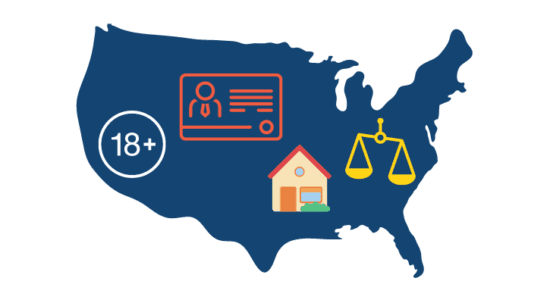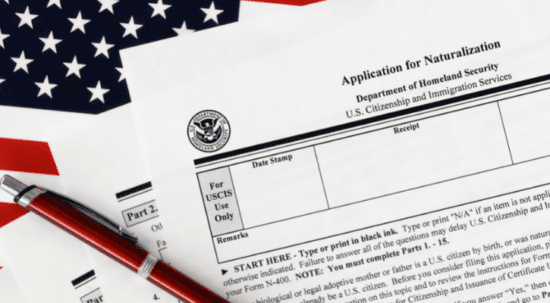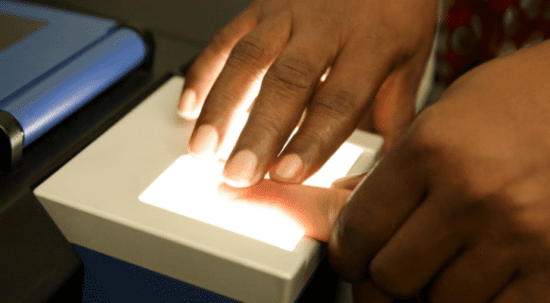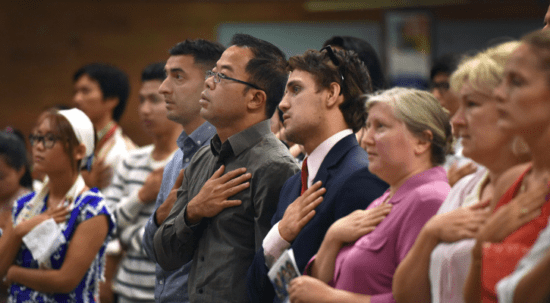The civics test
Naturalization is the process when a lawful permanent resident becomes a U.S. citizen. The process includes a naturalization interview with U.S. Citizenship and Immigration Services (USCIS). The civics test, also known as the citizenship test, is part of the interview.
The civics test makes sure you understand the U.S. government and know its history. You will need to pass it to become a U.S. citizen.
(https://www.youtube.com/watch?v=cV8IcSsd3Zw)
100 Civics test questions and answers
The USCIS officer will ask you up to 10 civics questions. You must answer 6 questions correctly to pass this part of the test. Even though it is 2025, the government is still using the 2008 version of the test.
Find a complete list of these questions and answers in your language. Most of these include both your language with English. The videos can help you practice saying the answers in English.
How to answer citizenship test questions
The answers to the questions are under each question and are marked with a bullet on the PDF.

Some questions have more than one correct answer.
If the question only asks for one of them, you can choose which answer you give the USCIS officer. This means you only need to learn one answer to these questions.

Some questions may ask for more than one answer.

You do not have to say the words in the parentheses ( ) unless you want to.

Some answers may change.
You may be asked for the name of an elected official. For example, “What is the name of the Speaker of the House of Representatives?” The name may change by the time you take your test if a new person is elected.
Some answers are different based on where you live.
Some questions are about your specific state. For example, “Who is the Governor of your state now?”
| Some questions may change based on the date and where you live. Before your test, check the USCIS test updates page for the correct answer. |
Special civics test for those 65 years and older
You can take a different version of the test if you are 65 years of age or older and have been a permanent resident (Green Card holder) for at least 20 years. This is called the 65/20 exemption.
You only have to study 20 questions for this test. The 20 questions are from the full list of 100. They are the ones marked with an asterisk (*). You still have to get 6 out of 10 questions correct to pass the test. This version can be taken in English or a language of your choice.
| Language | 20 questions and answers |
|---|---|
| Arabic (العربية)-English | View or download PDF |
| Chinese (简体中文)-English | View or download PDF |
| French (Français)-English | View or download PDF |
| Hindi (हिन्दी)-English | View or download PDF |
| Japanese (日本語)-English | View or download PDF |
| Karen (ကညီကျိၥ်)-English | View or download PDF
|
| Korean (한국어)-English | View or download PDF |
| Nepali (नेपाली)-English | View or download PDF |
| Pashto (پښتو)-English | View or download PDF |
| Persian (فارسی/دری)-English | View or download PDF |
| Polish (polski)-English | View or download PDF |
| Spanish (Español)-English | View or download PDF |
| Swahili (Kiswahili)-English | View or download PDF |
| Tagalog -English | View or download PDF |
| Thai (ภาษาไทย)-English | View or download PDF |
| Urdu (اُردُو)-English | View or download PDF |
| Vietnamese (Tiếng Việt)-English | View or download PDF |
Taking the civics test in another language
You can take the citizenship test in your own language only if meet you one of these requirements:
- You are 50 years of age or older and have been a permanent resident (Green Card holder) for at least 20 years. This is called the 50/20 exception.
- You are 55 years of age or older and have been a permanent resident (Green Card holder) for at least 15 years. This is called the 55/15 exception.
Learn more about exemptions and accommodations for the naturalization interview.
Next: Learn what to expect at the oath ceremony
The information on this page comes from USCIS, USA.gov, and other trusted sources. We aim to offer easy to understand information that is updated regularly. This information is not legal advice.









